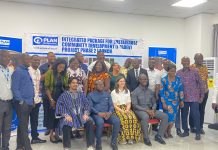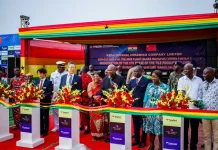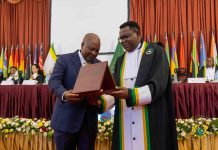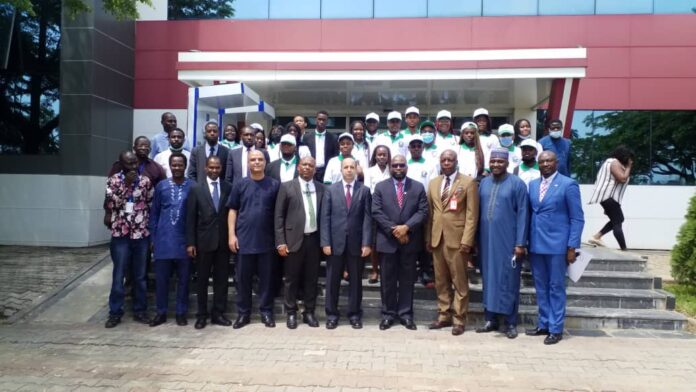The Director-General of GIABA, Kimelabalu ABA, has called on academia, to take a greater interest in promoting academic discussion and research on money laundering and terrorist financing, because of their negative impact on society, the fluidity of the subject matter, and the changing character of the game players.
According to him, there is a need for increased awareness of the negative impacts of money laundering and terrorism financing on the Nigerian State in all the university communities and other tertiary institutions across the country.
He said this during a virtual Annual Conference on Money Laundering and Terrorist Financing held on Tuesday, November 2, 2021, in Lagos-Nigeria.
Money Laundering and Terrorist Financing constitute major obstacles to human development and present significant obstacles to equal economic and social opportunities, especially for honest and hard-working people.
He said these crimes in many other countries have adversely impacted national security and development in Nigeria, including the erosion of hard-earned reputation for individuals, corporate organizations, and even countries.
In response to the devastating effects of these crimes, Kimelabalu ABA said, the Economic Community of West African States (ECOWAS) authorities established the Inter-Governmental Action Group against Money Laundering in West Africa (GIABA) in the year 2000.
“The primary mandate of GIABA is to, as an institution of ECOWAS, support its member states effectively to protect the economies of member States from being misused and abused to launder the proceeds of crimes and finance terrorism in any form. As a Financial Action Task Force (FATF) – Style Regional Body (FSRB), we are equally saddled to assess member States’ compliance with acceptable international AML/CFT standards, particularly the FATF standards. The effort is a clear demonstration of their political commitment to address these challenges within the region and contribute to the global efforts”.
Explaining further, he noted that, building knowledge and understanding of the phenomena of money laundering and terrorist financing is another critical area of our mission.
“We have conducted several studies, which are too numerous to mention. Some of the studies are on Trafficking in Small Arms and Light Weapons (SALW); Money Laundering and Insurgency; Tax Fraud and Money Laundering in West Africa: Terrorism financing in West and Central Africa; Money Laundering and Terrorist financing linked to the Extractive Industry, and, most recently, we published a report on Money Laundering and Terrorist Financing through the Informal and Illegal Currency Exchange Service Providers in West Africa”.
He said these reports provide insight into how criminals carry out money laundering terrorist financing in our countries and the vulnerabilities they exploit in committing these crimes.
Adding that they serve as invaluable sources of knowledge and insight into the criminal world of money launderers and terrorist financiers.
“Through our journey towards countering money laundering and terrorist financing has been slow and uneven as the Panama papers, the Pandora papers, and the activities of terrorists in our region will force us to acknowledge. The practical implementation of AML/CFT standards within the West African region has many unique challenges, but it can be done.
….What is required is dynamic, collective, concerted, coordinated, and collaborative efforts at all levels. It is imperative for GIABA and all stakeholders, including academia, to deepen our collaboration to effectively counter these criminals – we need a network of good people to counter the network of evil people. Criminals may be smart, but they often end up outsmarting themselves”.
Kimelabalu ABA, therefore, urged the university authorities to continue to show good examples in leadership, sound financial management, and transparency and accountability.
Hence calling on individuals to consider introducing and promoting courses on anti-money laundering and combating the financing of terrorism in order to build future anti-money laundering and anti-corruption professionals in the country. The country needs forensic examiners and auditors that can help trace and recover proceeds of crime wherever they may be located in the world.





































